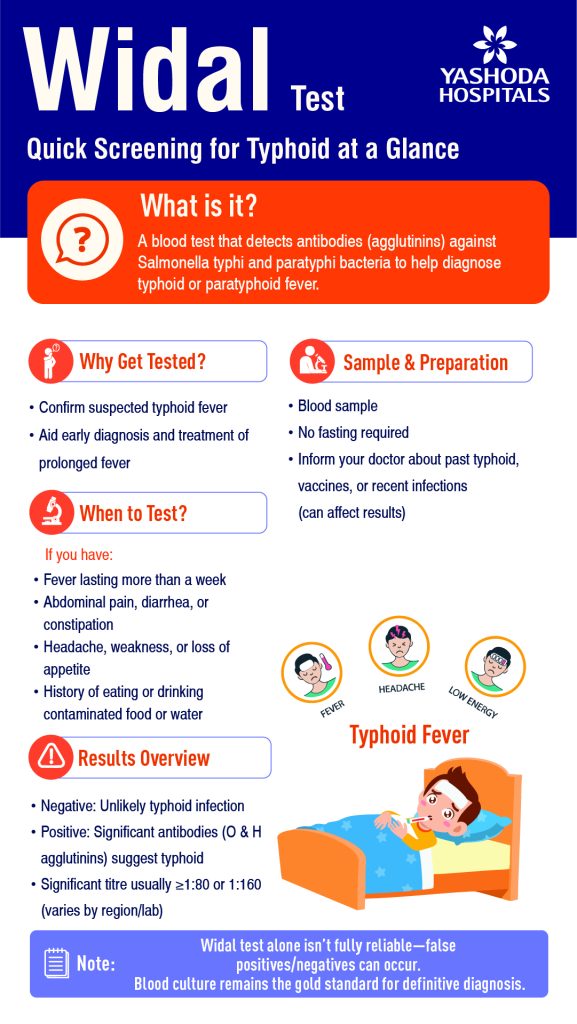What is a Widal Test?
The Widal test is a rapid diagnostic test used to identify the presence of infection with “Salmonella typhi” or “Salmonella paratyphi” bacteria. The test is based on the observation that typhoid patients have antibodies against Salmonella typhi in their blood, and therefore the bacteria will agglutinate when mixed with red blood cells from a healthy person. The presence of antibodies in the patient’s blood indicates that they are infected with Salmonella typhi and are likely to have typhoid fever. This test has no significant side effects and provides accurate test results most of the time at an affordable price.
What is the Widal test used for?
The Widal test is a blood test used to detect antibodies that are produced in response to a Salmonella typhi infection, which is the cause of typhoid fever. It is used to help diagnose a current or recent infection or to determine if an individual has had a previous typhoid infection.

How to read Widal test results and What is the Normal range in It?
The Widal test results are given as titre, which is a measure of the dilution at which the agglutination response occurs. The higher the titre, the more antibodies are present in the blood. The titres are given as a ratio, such as 1:20 or 1:80, which reflects the dilution at which the reaction happened.
The Widal test normal range is a titre that is less than 1:20 for both the O and H antigens of S. Typhi and S. paratyphi. A titre of 1:20 or above indicates the presence of antibodies and may suggest an ongoing or prior infection with the bacterium.




 Appointment
Appointment WhatsApp
WhatsApp Call
Call More
More